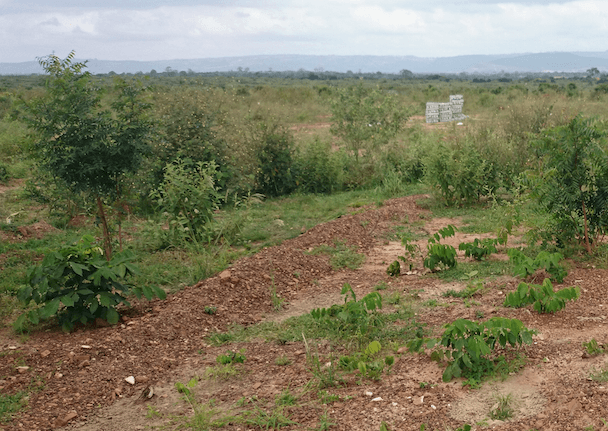The tranquility of Abuontem, a community nestled within Ghana’s Bosomtwe Constituency, has been disrupted by a simmering land dispute. Residents are voicing their discontent over the continued construction activities by private developers, despite a clear directive from the Asantehene, Otumfuo Osei Tutu II, the paramount chief of the Ashanti Kingdom, ordering a cessation of all building operations within the area. This royal decree, intended to freeze all development until pending land-related issues are resolved, has seemingly been disregarded by some, fueling tensions and accusations within the community. Residents, feeling their concerns are being ignored, now appeal to the Asantehene for direct intervention to uphold his own order and restore peace to Abuontem.
At the heart of the dispute lies the alleged complicity of the local Chief, Nana Akomea Sakyi Tutu II, whom residents accuse of permitting the ongoing construction, thereby defying the Asantehene’s authority. This perceived insubordination has sparked outrage among residents, who view it as a blatant disrespect to the revered traditional leader. Kwame Kusi, a resident and person with a disability, expressed his frustration, emphasizing the gravity of the Chief’s alleged actions in contravening the Asantehene’s directive. He, along with other residents like Kwadwo Asiedu and Kwabena Fosu, are calling for the Asantehene’s immediate intervention to address the ongoing construction and reaffirm his authority. They maintain their readiness to resist any further defiance of the Asantehene’s orders, indicating a potential escalation of the conflict if the issue remains unresolved.
In stark contrast to the residents’ claims, the Chief’s Administrator, Mr. Akwasi Acheampong, vehemently denies the allegations, branding them baseless and questioning the logic of the accusations. He underscores the Chief’s unwavering respect for the Asantehene and asserts that Nana Akomea Sakyi Tutu II would never undermine his authority by granting construction permits against his explicit orders. Mr. Acheampong points to the numerous public announcements made by the Chief reinforcing the Asantehene’s directive, highlighting the Chief’s active role in ensuring compliance within the community. He challenges the accusers to provide concrete evidence to substantiate their claims, emphasizing the gravity of such accusations against the local Chief.
The conflicting narratives paint a picture of a community grappling with complex land ownership issues and a potential power struggle within the traditional leadership structure. The residents’ frustration stems from the perceived disregard for the Asantehene’s authority and the anxieties surrounding unchecked development in their community. They feel their concerns are being dismissed, leaving them with no recourse but to appeal directly to the highest authority within their traditional system. Their willingness to resist further development underscores the depth of their concern and their commitment to upholding the Asantehene’s decree.
Mr. Acheampong’s firm denial, on the other hand, highlights the Chief’s attempts to navigate a sensitive situation. His insistence on evidence suggests a desire to address the issue transparently and defend the Chief’s reputation against what he considers to be unfounded accusations. The demand for proof also underscores the importance of verifying claims before escalating the conflict further. This impasse, where accusations meet denials, underscores the need for a thorough investigation and mediation to uncover the truth and restore harmony within Abuontem.
The future of Abuontem hinges on a swift and decisive resolution to this land dispute. The Asantehene’s intervention is crucial to clarify the situation, address the residents’ concerns, and ensure compliance with his original directive. A thorough investigation into the ongoing construction activities is necessary to determine if they are indeed authorized and, if not, to hold those responsible accountable. This situation underscores the importance of clear communication and transparency in land dealings, especially within traditional governance systems. Only through open dialogue and a commitment to respecting established authority can Abuontem hope to regain its peace and move forward towards a future where development is managed responsibly and with the consent of the community.


